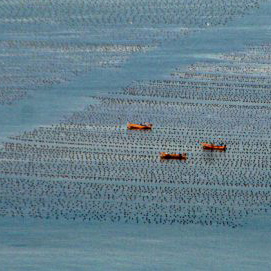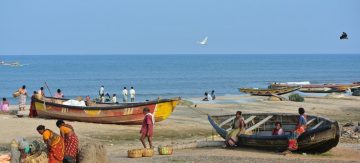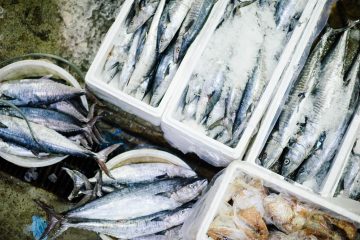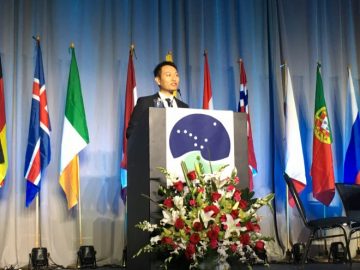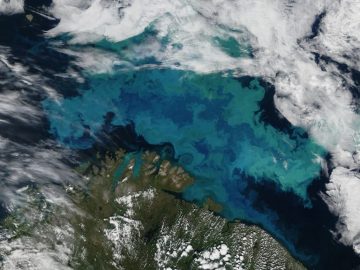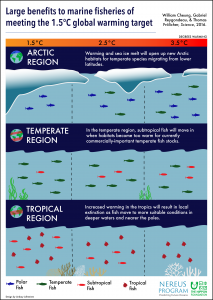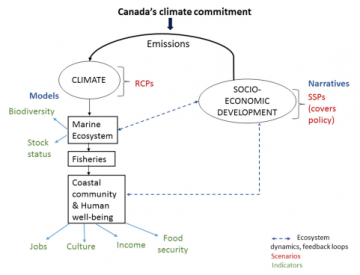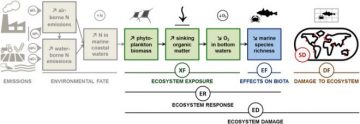Achieving Paris climate target could net additional billions in fisheries revenue
Achieving Agreement’s target could increase global fishers’ revenues by $4.6 billion annually.
CORU Director William Cheung wins ICES Prix d’Excellence Award
Cheung’s research is recognized internationally as an important part of the foundation for understanding future impacts of climate change on global marine biodiversity
Reconciling fisheries catch and ocean productivity
Phytoplankton are the foundation of ocean life, providing the energy that supports nearly all marine species. Levels of phytoplankton in an ocean area may seem like a good predictor for the amount of fish that can be caught there, but a new study co-authored by CORU researchers finds that this relationship is not so straightforward. […]
Scenarios for investigating the future of Canada’s oceans and marine fisheries under environmental and socioeconomic change
CORU Leader William Cheung recently co-authored a paper published in Regional Environmental Change that reviewed existing methods of scenario analysis (preparing for future response based on multiple potential outcomes) in the marine conservation and fisheries sectors in Canada. Their aim was to determine whether these scenario analyses in the existing literature adequately consider biophysical, socioeconomic and policy-related factors to “provide […]
Spatial differentiation of marine eutrophication damage indicators based on species density
“Spatial differentiation of marine eutrophication damage indicators based on species density” was recently published in Ecological Indicators, co-authored by CORU Alumnus Miranda Jones (UNEP-WCMC) and CORU Leader William Cheung. The paper looks at developing an index to assess eutrophication effects on marine ecosystems and introducing an ecosystem response indicator to nitrogen loadings to coastal waters. Read more:
